By Rick VanSickle
A fantastic opportunity awaits Niagara Chardonnay lovers at Vintages stores Saturday with an embarrassment of riches led by the newest member of the Le Clos Jordanne team.
As many of you already know, after being paused for a few years, the legendary Le Clos Jordanne project, part of the Arterra Canada family of wines, was brought back from the dead and the original winemaker, Thomas Bachelder, was asked to return the brand to greatness. With two vintages of the flagship Le Grand Clos Chardonnay and Pinot Noir under his belt for the rebooted project, Bachelder has produced a Jordan Village Chard and Pinot from 2019 vintage.
Aside the Grand Clos parcels, which are always sourced from the same two small blocks of chalky Chardonnay and Pinot Noir on the western side of the Le Clos Vineyard, Arterra has some 46 hectares (114 acres) of planted vines vineyards — now of older vine, low-yielding Jordan Bench Pinot Noir and Chardonnay.
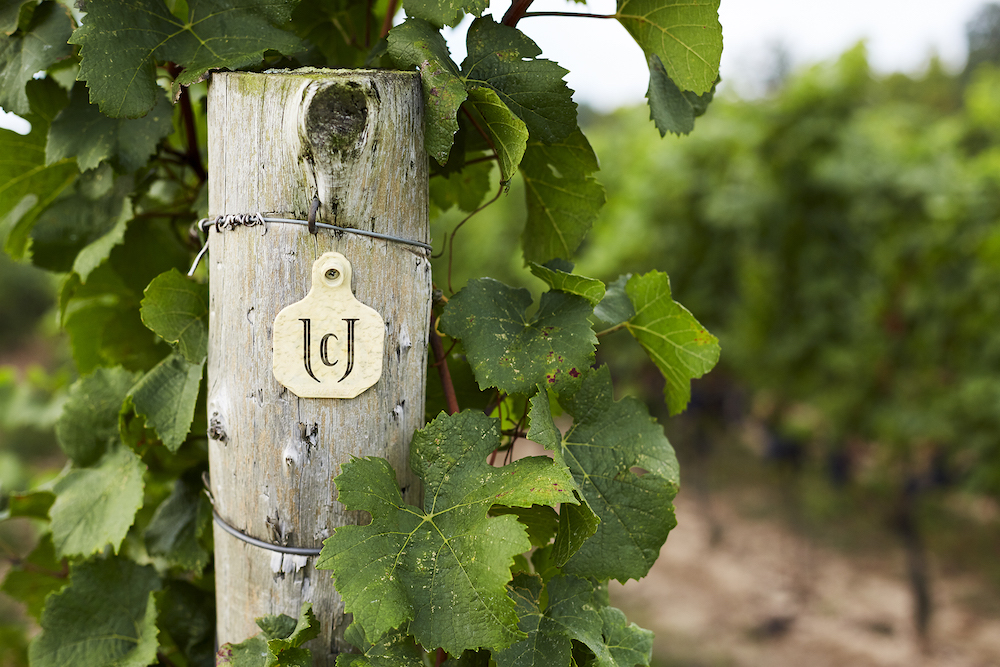
“With this new idea of a “Jordan Village” in mind, selected parcels from all three estate vineyards are crafted into one terroir blend,” explains Bachelder. “Starting in winter 2018 and 2019, working with vineyard manager Gerald Klose, I identified several well-known and loved parcels from the Claystone Vineyard; the Talon Ridge Vineyard, and of course, the Le Clos Jordanne Estate vineyard. In March 2019, we specially pruned and worked these blocks – watching them closely over the summer – shoulder-to-shoulder along with long-time LCJ lead vineyard hand Tony Jiminez — and then we hand-harvested them in mid-October 2021.”
After a long, wild-yeast ferment, the wines were barreled-down to a carefully curated selection of Burgundian barrels of different ages, from selected coopers and forests. “Then, the waiting game began – with everything kept scrupulously separate in our own designated corner of the Jackson-Triggs traditional barrel cellar.
While the Grand Clos is sourced entirely from the Le Clos Vineyard, the two Village wines are sourced from a combination of Le Clos (declassified Grand Clos barrels), Talon Ridge and Claystone Terrace Vineyards (what used to be single-vineyard wines for Le Clos in its previous incarnation).
The Le Clos Jordanne project was originally spread over four large vineyards planted specifically for Pinot and Chard, but when the project was shelved, most of the fruit was folded into various wines in Arterra’s portfolio.
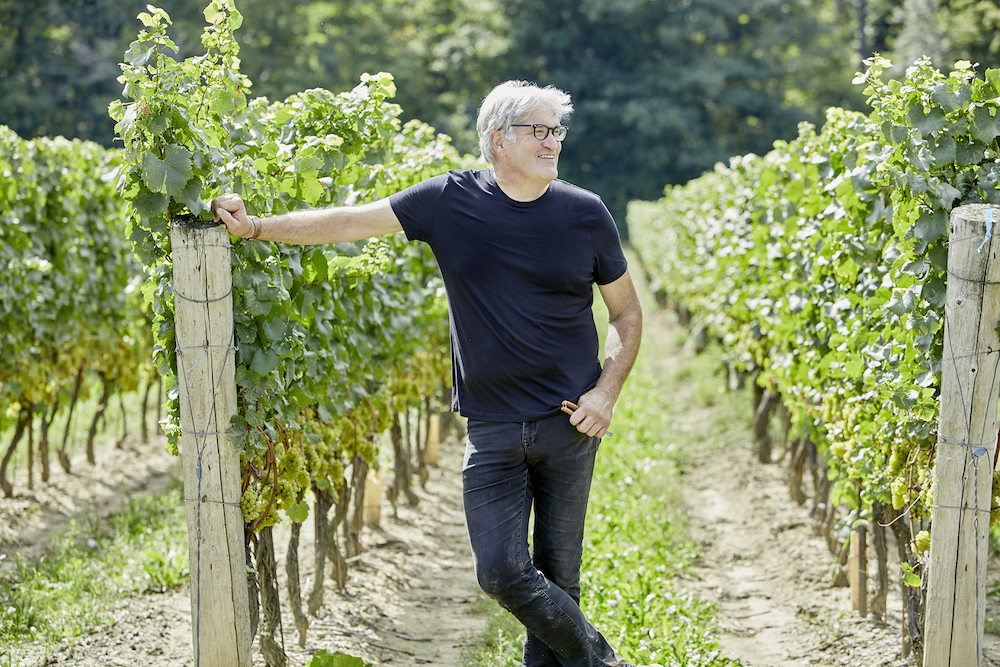
“Le Clos was a beautiful embarrassment of riches,” he says. “I can cherry pick the best of the parcels for the Village wines.”
Here’s the incredible part about this story. The Jordan Village wines are priced at $25, compared to $45 for the Grand Clos. That’s not a typo, and far be it from me to tell someone how to price these wines, but these Village wines are at single-vineyard status from some of the most notable vineyards in Ontario and priced like every day Pinot and Chard from Niagara. As a consumer, take note!
The Le Clos Chardonnay is being released at Vintages stores Saturday, the Pinot Noir will follow at some point. There are 2,000 six packs available for sale, and I suspect they will sell quickly at this price.
The Chardonnay is a blend of fruit from Le Clos, Claystone and Talon, while the Pinot Noir is a blend of Le Clos and Claystone. Both bottles are labeled Niagara Peninsula even though all the fruit is from the Jordan Bench. Because Talon Ridge is just outside the Twenty Mile Bench, the wine had to be labeled that way. Silly, yes, but VQA rules are rules. Rest assured, all Le Clos wines are Bench wines.
Both wines are stunners and at that price affordable, I would think, for anyone wanting to taste top-notch, cellar-worthy Pinots and Chards from Niagara.
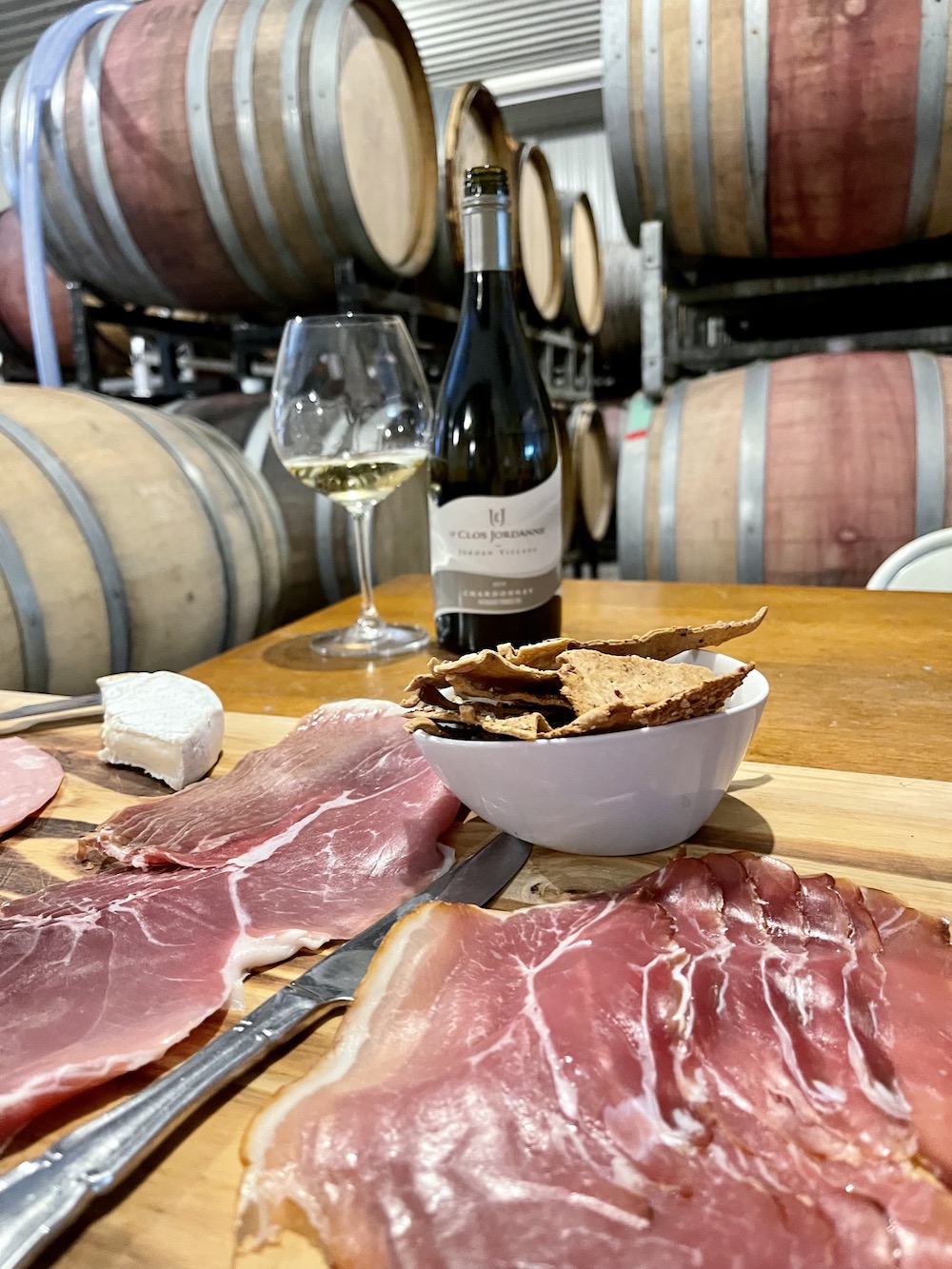
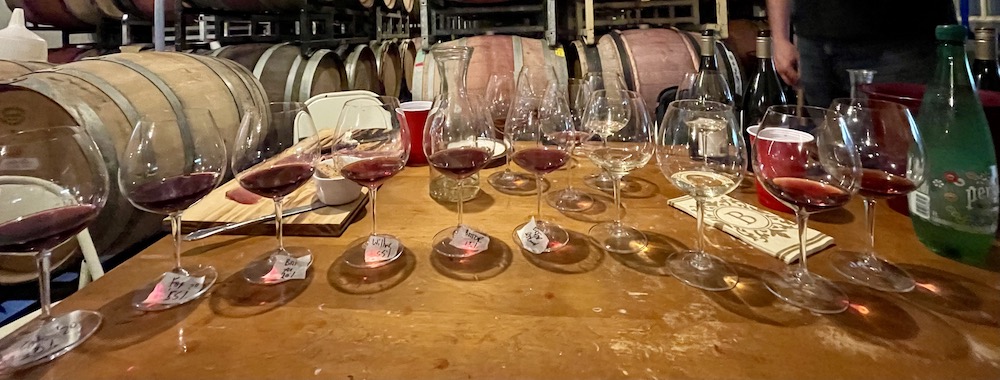
After a bit of noshing with Bachelder at the “bat cave” to taste these wines, he poured a lineup of Gamays from 2020 in barrel with various amounts whole cluster pressings. These are going to be stunning wines when released in 2021. Bachelder casts a wide net in Niagara for his various expressions of Gamay, now an important part of his namesake label. More on that later!
Here’s a review of the Chardonnay released at Vintages Saturday and the Pinot to be released sometime after that.
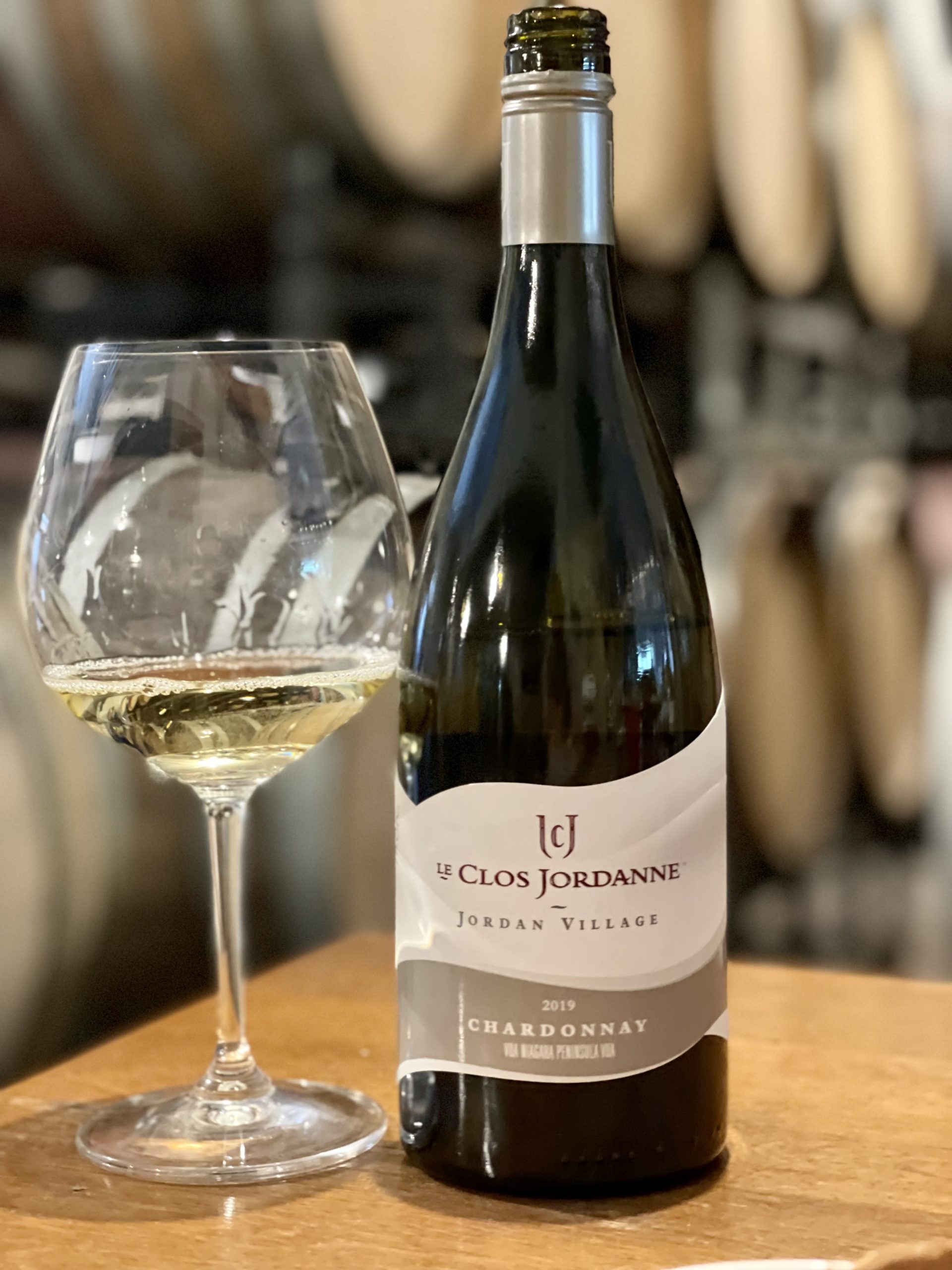
Le Clos Jordanne Jordan Village Chardonnay 2019 ($25, 92 points) — The Chardonnay is sourced from the Le Clos Vineyard, Claystone Terrace Vineyard (both Twenty Mile Bench) and Talon Ridge (Vinemount Ridge) on the Jordan Bench and made with the same attention to detail and deft touch of French oak Bachelder employs with the Grand Clos. The wine is aged in selected French oak barrels (only about 20% of which are new) for 16 to 18 months and both the Chard and Pinot are wild fermented. It has a pretty perfumed nose of ripe pear, lemon drop, yellow apple, honeysuckle, creamy/toasted vanilla notes, chalky minerality and lovely integrated spice notes. It’s generous on the palate with a creamy texture, pure chalky minerality, pear/apple/quince fruit, persistence, complexity and subtle savoury spice notes to go with a bright and finessed finish. Can cellar 5+ years if you can hold it that long.
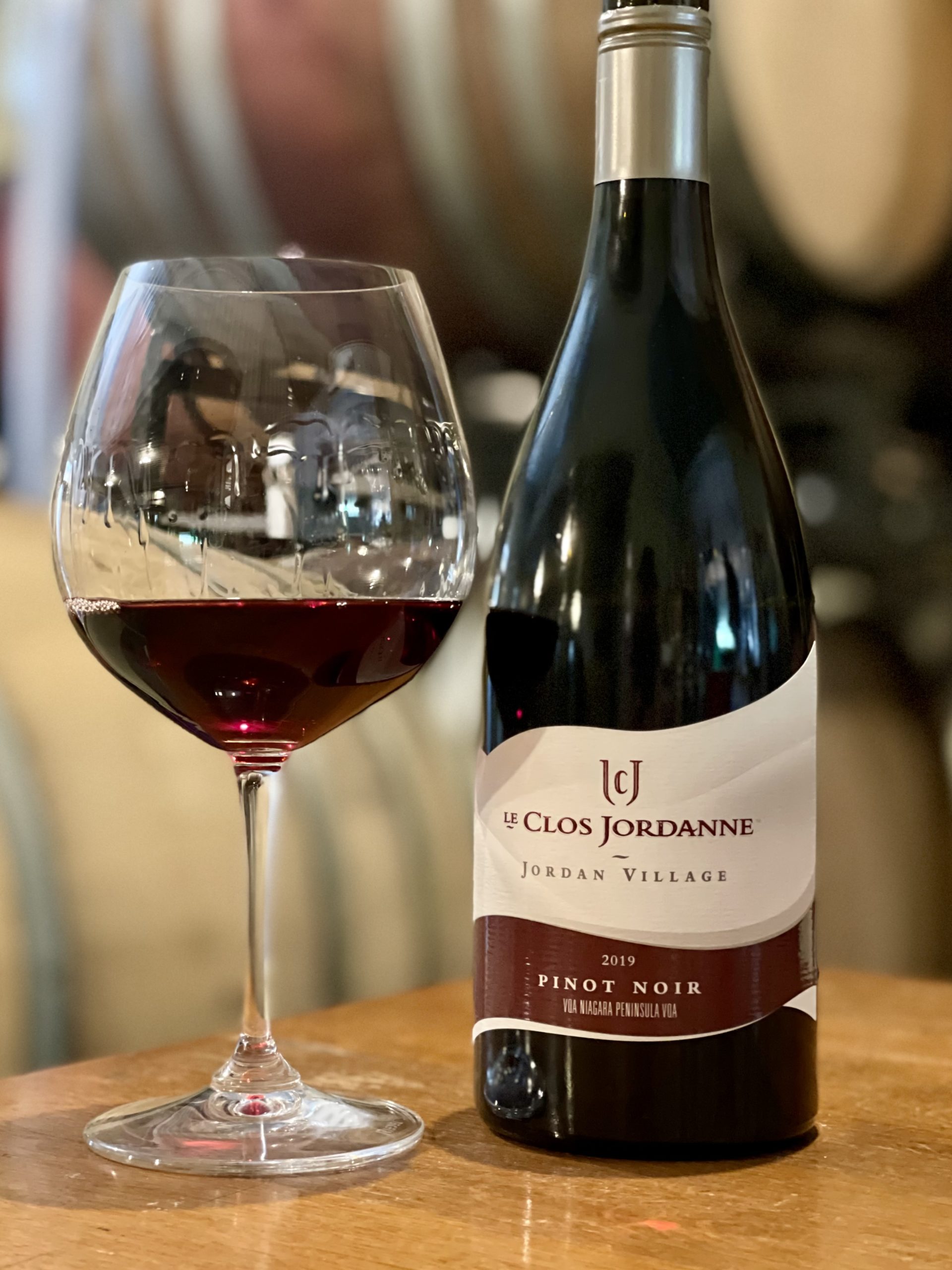
Le Clos Jordanne Jordan Village Pinot Noir 2019 ($25, 93 points) — The Pinot Noir is a blend of declassified Le Clos barrels and Claystone Vineyard, so entirely in the Twenty Mile Bench sub-app but still labeled “Niagara Peninsula” in case Bachelder blends in Talon Ridge fruit in future bottlings. The Pinot sees about 19 months in carefully curated French oak barrels. There is this gorgeous perfumed note in both the Chard and Pinot, so I have to assume it is part of the terroir of the Le Clos Vineyard. It adds such a beautiful dimension to both wines. In this Pinot, it complements the dark cherries, forest berries, or mulberries, as Bachelder notes, brambly raspberries, cedar plank, a mineral edge and some meaty/spicy accents. It is silky on the palate with medium+ tannins and structure, and profiles as a rich and gamy/savoury Pinot Noir with dark cherries, wild raspberries, elegant spice notes, chalky minerality and subtle cassis with a finessed and long, long finish. This will benefit from some cellaring, say 5+ years. Can’t wait to see where this $25 Pinot Noir will go. Great job on both wines.
Other wines released Saturday
at Vintages stores
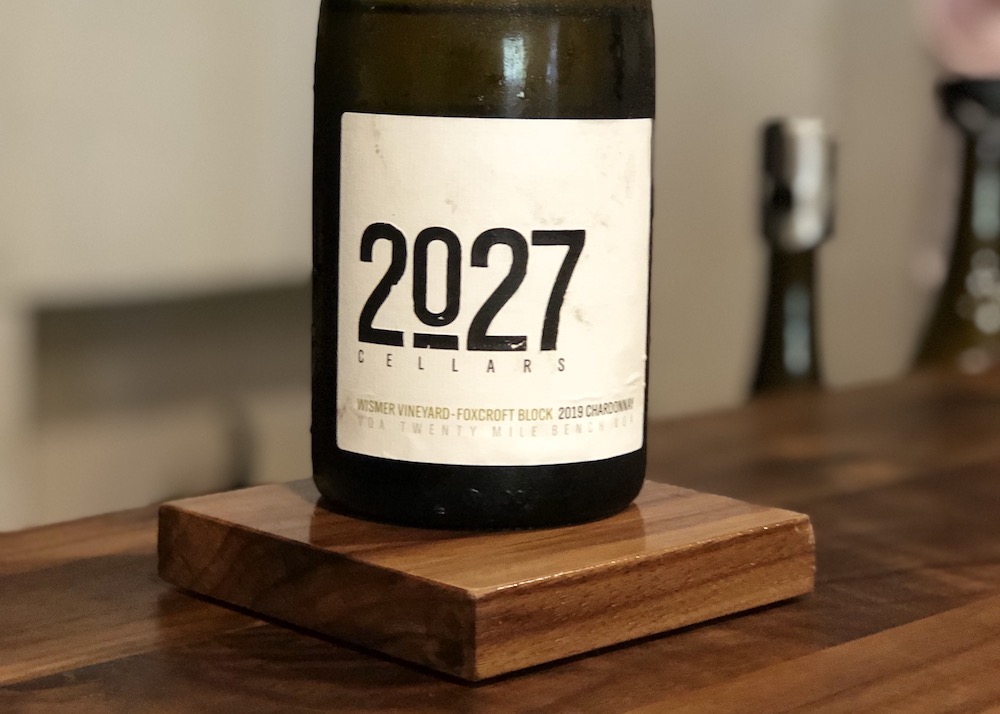
2027 Cellars Wismer Vineyard Foxcroft Block Chardonnay 2019 ($25, 93 points) — This single-vineyard Chardonnay epitomizes, for me, what 2027 Cellars is all about. Owner/winemaker Kevin Panagapka has been sourcing grapes from this special block in the Wismer Vineyard on the Twenty Mile Bench for over 10 years. It has been Wines In Niagara’s Most Thrilling White Wine and never strays from being one of the top Chards made in Niagara in any given vintage. This follows closely to all the other vintages of this wine and is made similar to all the others — 100% whole cluster pressed, wild fermented, wild malo with 100% French oak aging (20%, new oak). It has a perfumed nose of ripe pear, lemon blossom, crushed stones, apple, gunflint, toasted almonds and oak nuances. It’s more overt on the palate with rich pear fruit, quince, stony/saline minerality, zesty citrus, elegant and subtle spice and toasted almonds with electric acidity lifting the fruit through a long and finessed finish. Amazing Chard that is true to the soil where it was grown. So youthful right now and a definite candidate for the cellar, say 5+ years.
 Flat Rock Cellars Chardonnay 2019 ($20, 88 points) — The fruit is fermented and aged in French oak barrels. It has such a lovely nose of baked apple, pear, spice and subtle lemon zest. There’s a lot of wine here for the price on the palate with ripe apple and pear, spicy accents and zesty citrus on the finish.
Flat Rock Cellars Chardonnay 2019 ($20, 88 points) — The fruit is fermented and aged in French oak barrels. It has such a lovely nose of baked apple, pear, spice and subtle lemon zest. There’s a lot of wine here for the price on the palate with ripe apple and pear, spicy accents and zesty citrus on the finish.

Domaine Queylus Tradition Chardonnay 2018 ($30, 91 points) — The Queylus Tradition is from a mix of estate and Butler’s Grant Vineyard fruit with oak aging for 18 months (20% of the oak is new). There is a lovely chalkiness on the nose here with notes of pear, lemon blossom and light spice notes. The palate reveals pear, apple and lemon with flinty accents and searing acidity driving the finesse on the finish. “This is a more precise year than others,” said winemaker Thomas Bachelder. “We’re in a more linear, terroir place.”
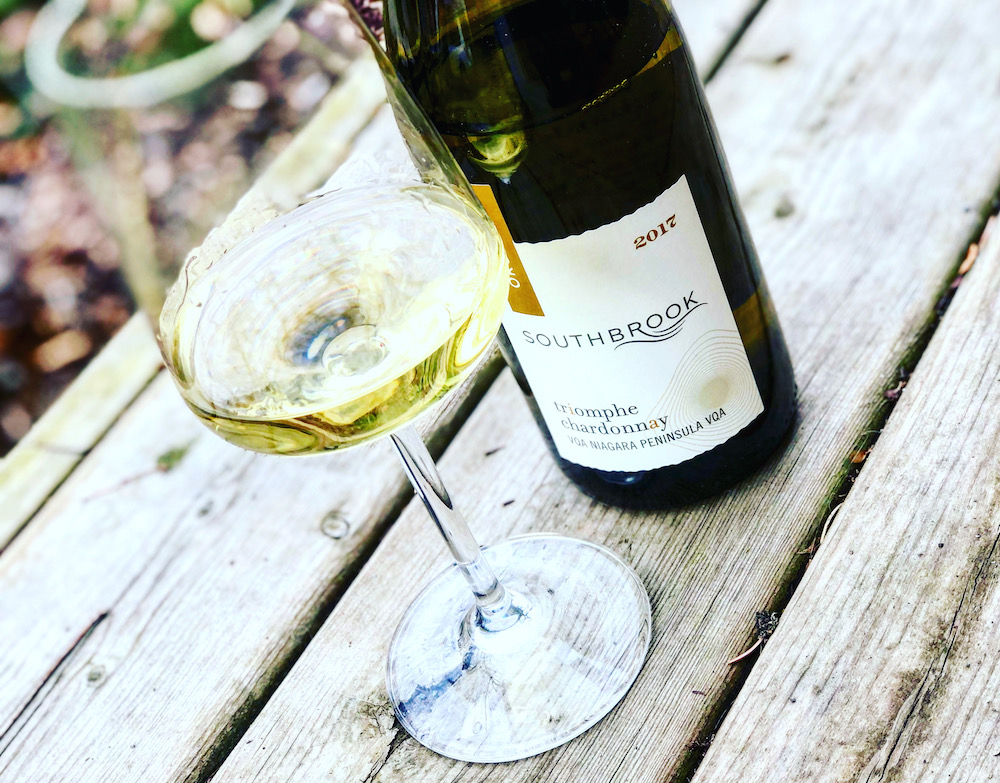
Southbrook Triomphe Organic Chardonnay 2017 ($25, 90 points)— This is a regional blend of Chardonnays from organic growers, including 70% “later harvested” Chardonnay Musqué from Lincoln Lakeshore, and the remaining 30% from Twenty Mile and Beamsville Benches and relatively late harvested at several dates throughout October. The slightly settled juice was transferred to 300 L used French oak barrels for wild fermentation, including wild malolactic fermentation, and aging for 7 months in those barrels. This has a bright nose of quince, nectarine, lemon, light and toasty spice notes, subtle ripe apple notes and flinty minerality. It’s juicy on the palate with a hint of savoury spices, cream, peach, pear, crisp apple, lemon zest and a lifted finish.

13th Street Expression Pinot Grigio 2019 ($18, 88 points) — A bold nose of melon, honeysuckle, peach, pear and some saline minerality. It’s dry on the palate with a fruity profile of peach, melon, pear, ginger and fresh finish.

Henry of Pelham Estate Cabernet/Merlot 2016 ($25, 92 points) — Whenever I think we’ve exhausted all the 2016 reds in Niagara, another one pops up out of nowhere. This is a beautifully aged Bordeaux variety blend with a rousing nose of dark fruits, spice and earthy/savoury notes that draw you into the glass. It has grippy tannins on the palate with a range of bold dark fruits, black cherries, enticing spice notes and a juicy, racy finish. Still lots of time left to put a few away in the cellar. Great value from a very good vintage in Niagara for bolder style reds.
Also released Saturday, but not reviewed:
• Magnotta The Art of Blending Red 2017 ($18)
• Creekside Rosé 2020 ($16)
• Marquis The Silver Line Pink Pinot Rosé 2019 ($18)
• Megalomaniac Pink Slip Rosé 2020 ($20)
• Magnotta The Art of Blending White 2018 ($17)
• Malivoire Estate Grown Chardonnay 2019 ($20)








Comment here